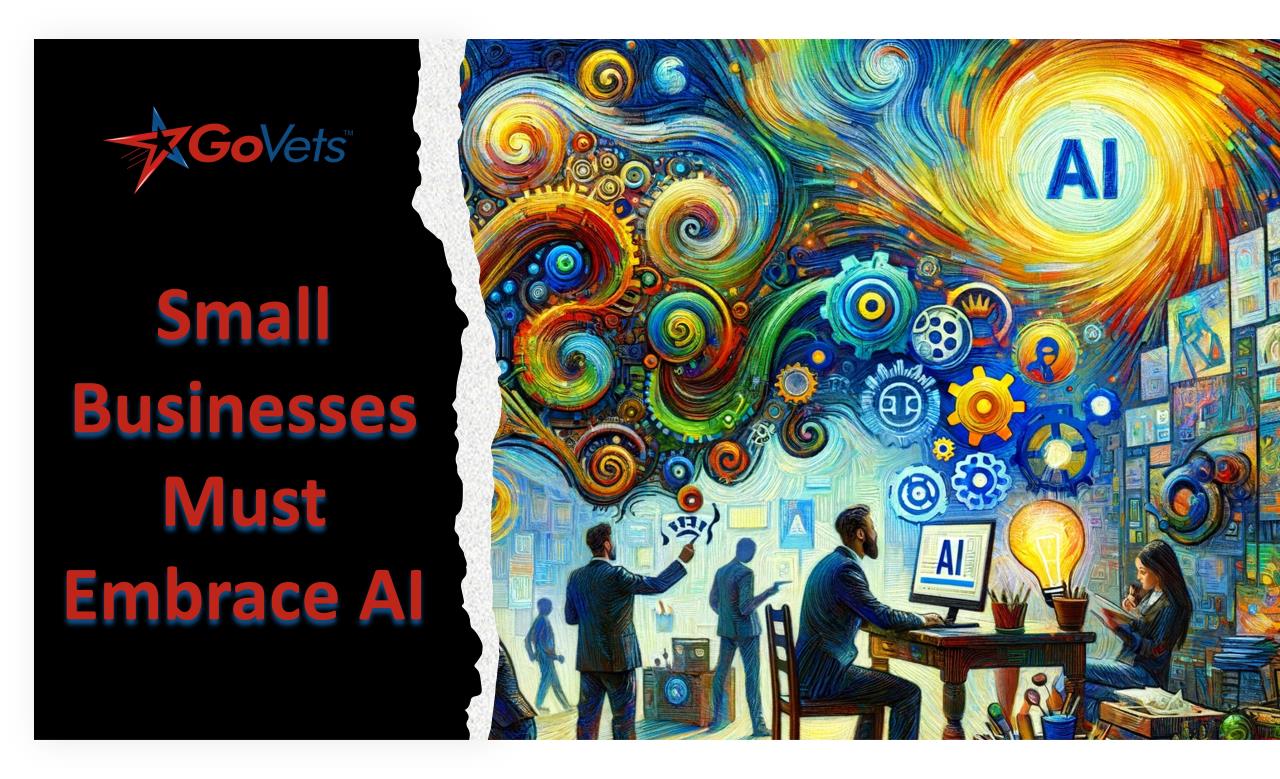AI for Small Businesses: Seize the Advantage in 2024 and Beyond

Seizing the AI Advantage: A Guide for US Small Businesses
Artificial intelligence (AI) is rapidly transforming every aspect of our lives, and businesses are no exception. From automating repetitive tasks to gleaning valuable insights from data, AI offers a wealth of opportunities for companies of all sizes. However, for small businesses, the prospect of adopting AI can seem daunting. This guide aims to demystify the process and equip US small businesses with the knowledge and tools needed to leverage AI for success.
Why AI Matters for Small Businesses
In today's competitive landscape, small businesses need every advantage they can get. AI presents a powerful solution to address key challenges and unlock new growth opportunities. By adopting AI, small businesses can:
- Boost efficiency and productivity: Automate routine tasks, freeing up valuable time and resources for strategic initiatives.
- Improve decision-making: Gain deeper customer insights and predict market trends with data analysis and AI-powered tools.
- Enhance customer service: Offer personalized experiences and resolve issues more effectively through chatbots and virtual assistants.
- Innovate and differentiate: Develop new products and services, or improve existing ones, by leveraging AI-powered solutions.
- Reduce costs: Eliminate unnecessary expenses by automating tasks and optimizing processes.
Top Tips for Successful AI Adoption
While the potential benefits of AI are significant, successfully adopting and scaling AI in a small business requires careful consideration and strategic planning. Here are some key tips to follow:
- Define your goals and objectives. Clearly identify what you hope to achieve with AI and how it aligns with your overall business strategy.
- Start small and focus on specific use cases. Choose a few areas where AI can have the biggest impact and pilot projects before scaling up.
- Invest in the right talent and resources. Recruit or upskill employees with expertise in data analysis, AI development, and project management.
- Build a strong data foundation. Ensure you have the necessary data infrastructure and processes in place to collect, store, and manage data effectively.
- Embrace a culture of experimentation and learning. Be willing to experiment with different AI solutions and learn from both successes and failures.
- Partner with AI experts. Seek guidance from AI vendors, consultants, or academic institutions to accelerate your AI journey.
- Prioritize ethical considerations. Ensure your AI projects are fair, transparent, and unbiased.
Impact on US Small Businesses in the Coming Months and Years
The impact of AI on US small businesses is expected to be significant and multifaceted. In the coming months and years, we can expect to see:
- Increased adoption of AI across all industries: AI will become more accessible and affordable for small businesses, leading to wider adoption across various sectors.
- Rise of AI-powered business solutions: Specialized AI solutions tailored to the specific needs of small businesses will become readily available, simplifying the adoption process.
- Emergence of new business models: AI will enable the creation of entirely new business models and opportunities for small businesses to compete and thrive.
- Greater focus on data and talent: Data will become a key asset for small businesses, and the demand for talent with AI expertise will increase.
How US Businesses and Government Contractors Can Pivot or Shift Their Focus
To stay ahead of the curve, US businesses and government contractors need to shift their focus and adapt to the evolving AI landscape. Here are some strategies to consider:
- Invest in AI training and development: Equip employees with the necessary skills to understand and utilize AI technologies.
- Partner with AI startups and research institutions: Collaborate with innovators to explore new AI applications and develop cutting-edge solutions.
- Embrace open-source AI tools and platforms: Leverage open-source resources to reduce costs and accelerate AI innovation.
- Build and cultivate a data-driven culture: Encourage data collection, analysis, and utilization across the organization.
- Advocate for government policies that support AI development and adoption: Encourage the government to invest in AI research, infrastructure, and education initiatives.
By embracing these recommendations and staying informed about the latest AI trends, US businesses and government contractors can position themselves for success in the AI-driven future.

References:
- Pagidyala, Srini. "How to Scale A.I. in Your Business." Inc., 27 Oct. 2023, https://www.forbes.com/sites/forbestechcouncil/2022/03/16/how-to-scale-your-business-with-ai/.
- Cohen, Jeremy. "10 Steps to Adopting Artificial Intelligence in Your Business." PC Magazine, 10 Oct. 2023, https://www.pcmag.com/categories/ai.
- Berrone, Philip, et al. "Building the AI-Powered Organization." Harvard Business Review, 24 July 2019,

